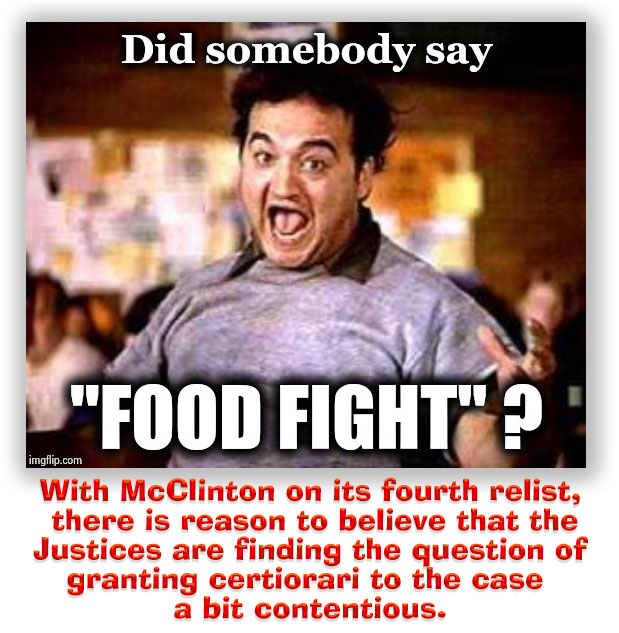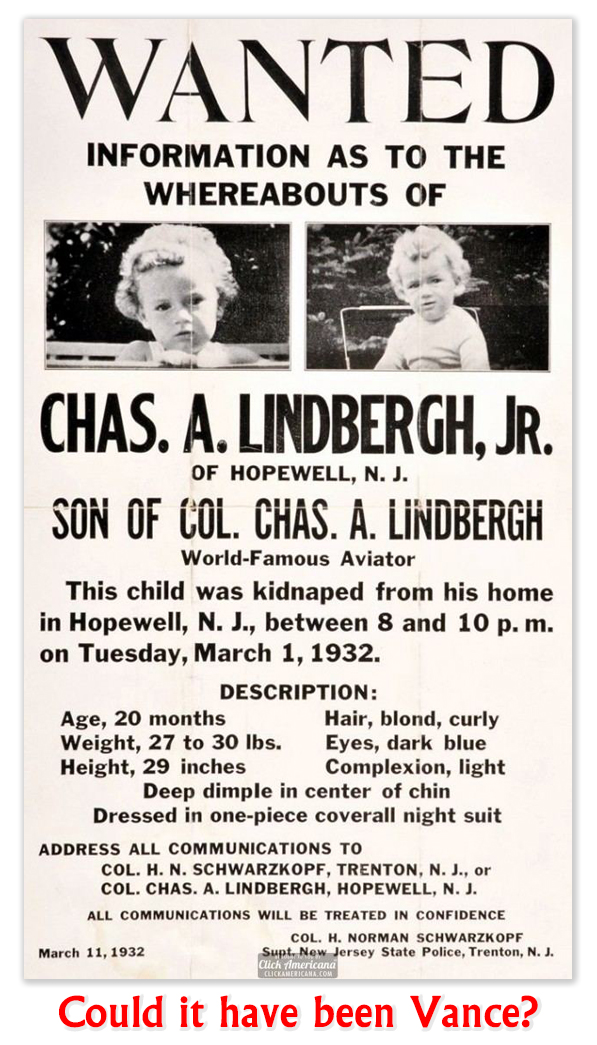We post news and comment on federal criminal justice issues, focused primarily on trial and post-conviction matters, legislative initiatives, and sentencing issues.

IS TODAY THE DAY FOR ACQUITTED CONDUCT REVIEW?
 At its last Friday morning conference on January 21st, the Supreme Court Justices against “relisted” McClinton v. United States rather than decided to review the 7th Circuit decision. The Justices take another whack at it today at the high court’s first certiorari conference in four weeks.
At its last Friday morning conference on January 21st, the Supreme Court Justices against “relisted” McClinton v. United States rather than decided to review the 7th Circuit decision. The Justices take another whack at it today at the high court’s first certiorari conference in four weeks.
McClinton raises the issue of whether a court can take into account conduct of which a defendant is acquitted by a jury when it sentences the defendant. The Guidelines permit it, although one of the draft amendments proposed a month ago, a change to USSG § 1B1.3 (relevant conduct), proposes to add a provision that holds “related conduct” not to include acquitted conduct.
 The McClinton case would go beyond a Guidelines amendment, however, and expressly find the practice of relying on acquitted conduct to be a violation of the 6th Amendment’s requirement that juries, not judges, find facts. In McClinton, the defendant was hammered at sentencing for a bank robbery in which a death occurred, despite being found not guilty of murder. His sentence was upheld by a 7th Circuit panel that felt itself bound by the 1997 Supreme Court decision in United States v. Watts.
The McClinton case would go beyond a Guidelines amendment, however, and expressly find the practice of relying on acquitted conduct to be a violation of the 6th Amendment’s requirement that juries, not judges, find facts. In McClinton, the defendant was hammered at sentencing for a bank robbery in which a death occurred, despite being found not guilty of murder. His sentence was upheld by a 7th Circuit panel that felt itself bound by the 1997 Supreme Court decision in United States v. Watts.
Even so, in his majority opinion 7th Circuit Judge Frank Easterbrook, a prominent conservative jurist, all but begged the Supreme Court to take up McClinton’s case. “Despite th[e] clear precedent [of Watts], McClinton’s contention is not frivolous,” he wrote for the three-judge panel. “It preserves for Supreme Court review an argument that has garnered increasing support among many circuit court judges and Supreme Court justices, who in dissenting and concurring opinions, have questioned the fairness and constitutionality of allowing courts to factor acquitted conduct into sentencing calculations.”
 The fact that McClinton and four similar cases have been relisted by the Supreme Court four times suggests that there is sentiment among some Justices to take up the issue and strident opposition from others to leave Watts alone.
The fact that McClinton and four similar cases have been relisted by the Supreme Court four times suggests that there is sentiment among some Justices to take up the issue and strident opposition from others to leave Watts alone.
Any petition for certiorari granted from this point through June will be argued next term, beginning in October 2023.
New Republic, When You’re Sentenced for a Crime That Even a Jury Agrees You Didn’t Commit (February 1, 2023)
Sentencing Guidelines for United States Courts, 88 FR 7180, (February 2, 2023)
United States v. McClinton, 23 F.4th 732 (7th Cir. 2022)
McClinton v. United States, Case 21-1557 (petition for certiorari pending)
– Thomas L. Root




